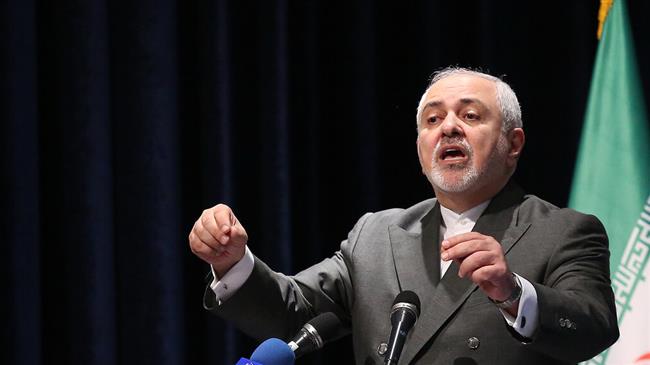Iraqi people will prevent others from exploiting their legitimate concerns: Iran FM
Iranian Foreign Minister Mohammad Javad Zarif says the Iraqi nation’s vigilance will prevent foreigners from taking advantage of recent protests in the Arab country to advance their own interests.
“We believe that the Iraqi people are owners of the country and their rights need to be observed,” Zarif said in an interview with ICANA on Wednesday.
“Officials of the Islamic Republic of Iran believe that the Iraqi people are vigilant and will not allow others to exploit their legitimate concerns that are also recognized by the Iraqi government,” he added.
Iraqi protests broke out last week, with calls to reduce corruption and unemployment.
The rallies soon turned into riots as some protesters started vandalizing public properties and attempted to enter the Green Zone in Baghdad -- which houses government offices and foreign diplomatic missions.
The clashes have killed over 100 people and wounded more than 6,000 others.
Prime Minister Adel Abdul-Mahd on Wednesday announced three days of mourning starting Thursday for those killed in the protests, his office said in a statement.
Iraqi officials say there are "malicious hands" behind the killing of both protesters and security forces during the recent spate of unrest in the country.
On Monday, Iraqi President Barham Salih condemned as “unacceptable’’ the recent acts of violence targeting protesters, journalists and security forces, and urged security forces to preserve the rights of all Iraqis.
In a televised speech, Salih also called for ministerial changes and urged parliament to enact reforms, including electoral reform, to address the demands of protesters and warned against foreign attempts to fish in troubled waters.
Iraq's top Shia leader, Grand Ayatollah Ali al-Sistani, has also urged security forces and protesters not to use violence.
In a letter read out by his representative Ahmed al-Safi during a sermon in the holy city of Karbala on Friday, the top cleric also criticized officials and political sides for failing to answer the demands of the people to fight corruption, urging them to heed the demands of the protesters “before it's too late.”
On Tuesday, Abdul-Mahdi’s cabinet approved the second package of reforms, including distribution of residential plots of land to citizens, expansion of municipal borders of cities, and changing agricultural land into residential.
The planned reforms also contain freezing the law, which allows payment of several salaries to one public servant, providing jobs for young people and activation of the agricultural lending fund.
'Next to impossible' to rescue patients from Gaza's Kamal Adwan Hospital: Director
VIDEO | Vietnam current prosperity
Report blames gasoil exports for shortage at Iranian power plants
VIDEO | Hind Rajab Foundation names Israeli war criminals vacationing after Gaza genocide
VIDEO | Australians rally for Gaza ahead of Christmas festivities
VIDEO | Attacks on Sana'a
Iran reports further drop in annual inflation rate in December
Israel indicts two settlers over suspected spying for Hezbollah













 This makes it easy to access the Press TV website
This makes it easy to access the Press TV website